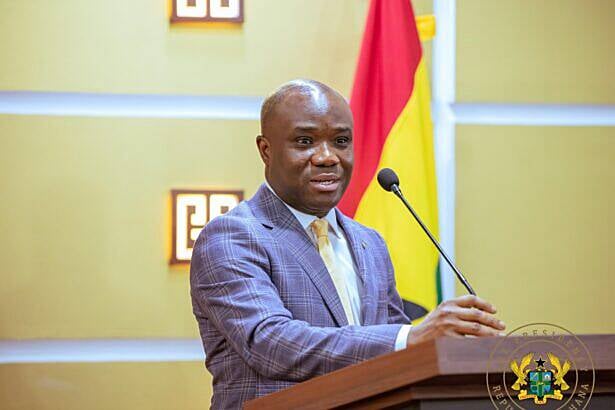Minister of State in charge of Government Communications, Felix Kwakye Ofosu, has dismissed claims that there are ulterior motives behind the selection of Adu Lodge as the venue for hearing petitions seeking the removal of Chief Justice Gertrude Torkonoo.
His comment follows concerns raised by the suspended Chief Justice, who believes the venue was deliberately chosen to intimidate her due to its historical link to the 1982 murder of three High Court judges and a military officer.
Justice Torkonoo, who has been on suspension since April pending the outcome of a committee probe, recounted during a national address on Wednesday, June 25, that the late Major Sam Acquah—one of those killed—was her uncle and guardian.
“I need to make the disclosure at this point that the Adu Lodge facility that I am being tried in featured very prominently in the planning of the murder of judges on June 30th, 1982. Major Sam Acquah, the military officer who was killed with the three High Court Judges…was my uncle and my guardian when I entered the University of Ghana in September 1980. I was also living with him at the time he was abducted and murdered,” she said.
“Was Adu Lodge chosen for this inquiry to make me feel insecure? I think so. And I continue to hold the view that there is no reason to hold a quasi-judicial hearing behind the high walls of Adu Lodge.”
But speaking on behalf of the presidency, Kwakye Ofosu rejected the suggestion, describing it as “most disingenuous.”
“The attempt to link the dastardly killings of some Supreme Court judges and a military officer to this case is most disingenuous to begin with. This government and President Mahama have nothing to do with it,” he said.
“There is absolutely no nexus between the petition that has been brought and that unfortunate incident in our past. So any effort to link the two is regrettable and should not find space in this sort of discourse. It is most undesirable. It is most unacceptable.”
He further clarified that the decision to use Adu Lodge was made by the committee and not the government.
“The decision to use that place was not that of government or President Mahama. The committee requested that they needed facilities of a certain status that would house their activities and facilitate a smooth running of the proceedings. And that facility was available,” he stated.


